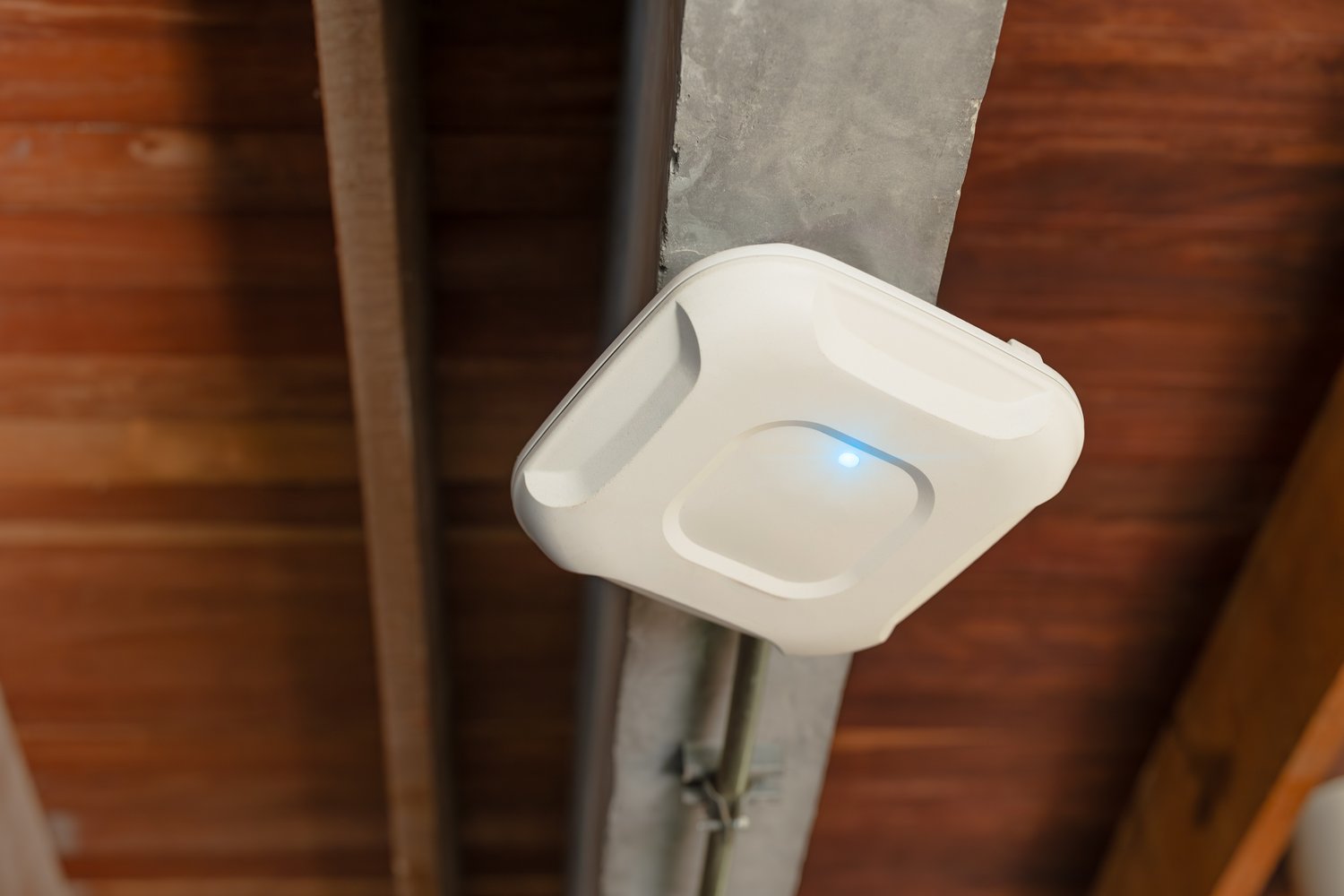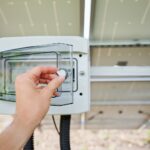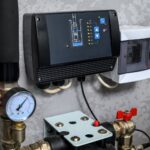Imagine the last time your smart window sensors went off unexpectedly, leaving you scrambling to check your home for intruders, only to find it was another false alarm. This frustrating issue is all too common, affecting the effectiveness and reliability of your home security system. But what if you could minimize these false alerts and regain peace of mind? This article delves into the key culprits behind unexpected sensor alerts, namely sensitivity settings and battery performance, to help you enhance your home’s security.
- Discover the primary causes of false alerts in smart window sensors, focusing on sensitivity and battery issues.
- Learn how to fine-tune sensor sensitivity to ensure accurate detection of real threats.
- Understand the role of battery health in the performance of smart window sensors and how to maintain it.
- Explore actionable solutions to mitigate false alerts through improved sensitivity settings and robust battery maintenance.
By addressing these common issues, you’ll not only enhance your home security but also gain a deeper understanding of how to choose and maintain reliable smart window sensors. Ready to enhance your home’s security system’s reliability? Dive into the article for practical solutions.
Understanding Smart Window Sensors False Alerts: Sensitivity and Battery Issues Explained
Smart window sensors have become integral to modern home security systems. However, false alerts can be a persistent issue that challenges their reliability. These false alarms can be both frustrating and disruptive, potentially diminishing the trust homeowners have in their security solutions.
One of the primary causes of false alerts is the sensitivity settings of these sensors. If the sensitivity is set too high, minor disturbances such as a strong gust of wind or heavy rain might trigger an alert. On the other hand, if set too low, genuine threats may go undetected. Therefore, finding the right balance is crucial for optimal performance.
Another significant factor contributing to false alerts is battery performance. As batteries deteriorate over time, they may cause the sensors to behave erratically, leading to inconsistent alerts. Ensuring that batteries are functioning at their best can help minimize false alerts and maintain the integrity of home security systems.
Understanding the roles sensitivity settings and battery health play is the first step towards achieving more precise and dependable smart window sensor performance.
Adjusting Sensor Sensitivity: Fine-Tuning for Accurate Alerts
Fine-tuning the sensitivity of smart window sensors is essential to reducing false alerts and ensuring they perform as intended. Most smart sensors come with adjustable sensitivity settings, allowing homeowners to customize their operation based on the unique environment of their property.
Begin by accessing the sensor’s settings via its associated app or control panel. Here, you can experiment with different sensitivity levels. A useful approach is to start at a moderate setting and gradually adjust incrementally until the sensors consistently distinguish between valid threats and harmless activities.
Be aware of external factors specific to your home environment, such as the frequency of passing traffic, neighborhood noises, or even nearby wildlife. Adjusting sensitivity with these factors in mind will further help in preventing unnecessary false alarms.
Complex environments may require more advanced tuning. In such cases, consulting with a professional might provide deeper insights. This careful calibration process not only enhances security but also extends the lifespan of your smart window sensors by preventing undue mechanical strain.
The Impact of Battery Health on Smart Window Sensors Performance
The performance of smart window sensors is intricately tied to the health of their batteries. These devices rely heavily on a consistent power supply to function effectively and communicate within a smart home network. Insufficient battery power can lead to delayed or missed alerts, and in some cases, false alerts.
Battery health is crucial for maintaining the reliability of these home security sensors. As battery capacity diminishes, the sensors may struggle to operate effectively, especially in low-power situations. This can lead to increased occurrences of false positives as the sensors may not correctly interpret movement or other triggers.
To prevent such issues, it’s essential to perform regular battery checks and replacements. Consider investing in high-quality batteries designed specifically for smart devices, as these offer longer lifespans and more consistent power output. Regularly testing your sensors’ response time and accuracy can also help identify when a battery change is due.
By maintaining optimal battery health, you can ensure that your smart window sensors continue to deliver precise and reliable performance, enhancing your overall home security system.
Solutions to Mitigate Smart Window Sensors False Alerts: Sensitivity and Battery Fixes
False alerts from smart window sensors can be both frustrating and potentially hazardous if they lead to unnecessary alarm responses. Thankfully, there are several strategies to mitigate these issues, focusing on sensitivity adjustments and battery maintenance.
Firstly, fine-tuning the sensitivity settings is crucial. Many smart window sensors allow users to adjust how sensitive the sensor is to motion or pressure changes. If the sensor is set too high, it may detect minor disturbances and trigger false alerts. Experiment with different settings to find a balance that accurately recognizes real threats while minimizing false alarms.
In addition to sensitivity calibration, ensuring robust battery health is equally important. Regularly inspect and replace batteries to keep them working at full capacity. A weakened battery can cause erratic sensor behavior, leading to increased false alerts. Implementing a routine check can help catch these issues early.
Choosing sensors that offer user-friendly sensitivity controls and are compatible with sustainable, long-life batteries can also enhance reliability. By addressing both sensitivity and battery factors, homeowners can greatly reduce the frequency of false alerts, improving the overall efficiency and trustworthiness of their smart home security systems.
Choosing the Right Smart Window Sensors for Reliability and Performance
When it comes to securing your home, selecting the right smart window sensors is crucial for ensuring reliability and performance durability. Not all sensors are created equal. Therefore, understanding the features that contribute to their efficiency is essential for making an informed decision. In this guide, we’ll explore key aspects that define high-quality smart window sensors, focusing on adjustable sensitivity and battery longevity.
First and foremost, look for sensors that offer adjustable sensitivity settings. This feature is vital as it allows you to fine-tune the sensors’ responsiveness to external stimuli, minimizing the risk of false alarms caused by non-threatening events such as rain or passing vehicles. Most advanced sensors come with user-friendly interfaces, enabling quick adjustments as needed.
Another critical factor is long-lasting battery life. Choosing sensors equipped with efficient batteries ensures continuous operation, reducing the chances of nuisance false alerts due to power loss. Opt for models with battery life indicators or low battery notifications. This feature alerts you when it’s time to replace or recharge the batteries, ensuring uninterrupted performance.
Additionally, consider the integration capabilities of the sensors. High-quality smart window sensors should seamlessly integrate with other smart home systems. This ensures a cohesive security strategy and allows you to control multiple devices from a central platform, enhancing convenience and operational efficiency.
Durability and construction quality also play significant roles in sensor performance. Sensors crafted from robust materials withstand environmental challenges such as humidity and temperature fluctuations, maintaining their operational integrity over time.
By evaluating these features and prioritizing models with adjustable sensitivity, robust battery options, and reliable integration, you can select smart window sensors that not only enhance security but also offer peace of mind with their dependable performance. Choose wisely, and your home’s security will be in good hands.
Frequently Asked Questions on Smart Window Sensors
What are common causes of false alerts in smart window sensors?
Common causes include incorrect sensitivity settings and poor battery health.
How can I adjust the sensitivity of my smart window sensors?
Consult the sensor’s manual to access sensitivity settings and fine-tune them according to your environment.
Why does my sensor keep sending alerts on windy days?
Wind may affect the sensitivity. Consider adjusting the settings lower to prevent false alerts.
How often should I check the battery health of my sensors?
Perform a monthly check, especially if you notice frequent false alerts or other performance issues.
What are the signs of a failing sensor battery?
Weak performance, frequent false alerts, and alerts about low battery can indicate failing batteries.
How can I ensure my smart window sensors are reliable?
Regularly maintain both the sensitivity settings and check the battery health for optimal reliability.





